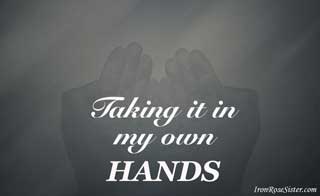 I was no ordinary child. From an early age, everyone knew I was special. To start with, I was the only kid in my grade—the only Hebrew kid.
I was no ordinary child. From an early age, everyone knew I was special. To start with, I was the only kid in my grade—the only Hebrew kid.
My Hebrew roots were obvious because of how I looked, but I was safe in Pharaoh’s house, raised by his daughter.
God had been merciful.
Even though the king had ordered that all the newborn babies be killed, my mom sent me down the river in a basket and Pharaoh’s daughter rescued me. My sister, Miriam, was watching nearby, just as she was always taking care of me. Then, at Miriam’s suggestion, mom was able to nurse me and tell me stories of Jehovah God in the palace.
The stories of Jehovah God intermingled with the education and wisdom of the Egyptians with which I was trained.
My life was easy and blessed. I was powerful in speech and action, but I knew the pain and oppression of my people, the Israelites. So, when I was about forty, I was ready. I had known my whole life that I was saved for a special purpose—to save God’s people. And I was ready to step up and fulfill my calling. “I’ve got this,” I thought.
So when I decided to visit my own people, and saw one of them being mistreated by an Egyptian, I went to his defense and killed the Egyptian.
I was sure that by avenging that Israelite, the people would realize that God was using me to rescue them (Acts 7:25). However, that was not how it played out.
The next day, some Israelites were fighting and I tried to step in, but what I had done the day before backfired on me and my leadership was rejected.
Dejected and discouraged, I fled to Midian where I settled as a foreigner, married, and had two sons. I stayed in Midian forty years, mostly working as a shepherd, which gave me a lot of time to reflect on what I had done and how I had mishandled things.
God had a plan for my life, but I had taken it into my own hands and was trying to make it happen in my way and in my timing.
God didn’t use me when I was young, “powerful of speech and action,” but rather when I was older, more humble, and stuttered.
God waited until I let go of trying to control how he saved his people, so that I could be used simply as an instrument in his hands.
But I always struggled with taking matters back into my own hands, especially when the people grumbled and complained.
And I paid a bitter price for not leaving it in God’s hands and not trusting him and his plan. I struck the rock twice instead of speaking to it (Num. 20:1-14). By taking it in my own hands, I rejected God and was unable to enter the Promised Land.
While I never stepped foot into the promised land of Canaan, God’s grace is great and I do, now, taste the profound goodness of God in the eternal Promised Land.
May you join me in repenting of taking things in our own hands. May we always place our trust in the Divine Gardener and leave things in his hands.
Stephen’s account of Moses’s life as told from Moses’s perspective, Acts 7:17-40.